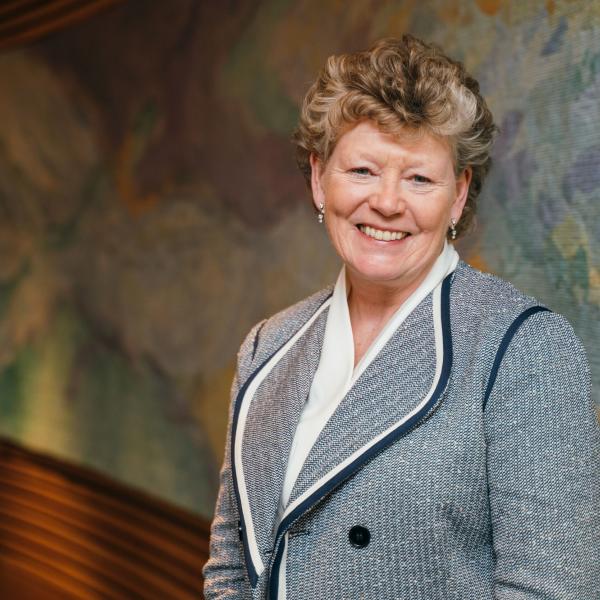About the event
Vivienne Cox talks about the future of energy in the context of the climate emergency.
The climate emergency is not a black-and-white issue with a simple answer. It is a highly complex problem that will require a ‘messy combination of solutions’, says Vivienne Cox, Vice-Chair of the Saïd Business School Board and formerly head of oil giant BP’s alternative energy division.
Speaking at a Distinguished Speaker Seminar at the School on 2 March 2020, Cox acknowledged the force of current climate protests and the belief that the world must stop relying on fossil fuels, but offered a more nuanced view both of the problem and how it should be addressed, explaining that we are likely to be ‘stuck with fossil fuels for some period of time to come’.
‘In my view we are facing two crises at the moment,’ she said. ‘The first is the climate emergency. That is real and has to be dealt with. The second is that there are still 2bn people in the world without access to energy … They have to have the opportunities that we’ve had’.
Although renewables are currently growing faster than any other fuel, they are doing so from a very small base. The sheer scale and complexity of the energy business means that it will be impossible just to shut it down. In addition, echoing Hiro Mizuno’s comments in January, Cox did not think that divesting shares in oil and gas companies was the answer. ‘We have to create change and create momentum for change -- but those shares will be owned by somebody. And I think it will be far better to have responsible, engaged owners … [who will] put pressure on these companies and push them to do the maximum possible – whether it’s through investment in technology, investment in renewable energies, or investment in mitigating the emissions from burning fossil fuels. Responsible owners are the solution here and not divestment,’ she said.
BP reduced investment in alternative energy very significantly after Cox left the company, but she believes that the recently announced target of reducing its carbon footprint to net zero by 2050 could ‘unleash a good deal of creativity and permission to try different things’. The oil industry giants may have been a part of the problem in the first place, but they could and should be part of the solution, and young people should not shy away from joining them. ‘If I were an MBA today I would want to be going in to try to solve these problems, which are technical problems but also behavioural problems, political problems, and social problems. That to me would be a tremendously challenging and rewarding thing to be part of,’ she said.
The role of business schools in educating MBAs who can take on these problems is ‘training people to be able to think,’ she said. ‘The world is changing so fast at the moment. People have to be able to look at problems from different angles to come up with the solutions we’re going to need. They need to be able to look at problems broadly, and have the courage to be able to challenge.’
